Learning that your partner lied to you about something can be heartbreaking. Not only does it mean that they had things to hide or didn’t feel comfortable being open with you, it is also likely to become a reason not to trust them, when trust is one of the most important things in a relationship.
In this redditor’s case, the husband didn’t lie about something. He lied about everything. Upon learning that her spouse fabricated his entire life, the woman turned to an online community, looking for legal advice, where she later provided an update and more details about her story, too. Scroll down to find it all in her own words below.
Lying is one of the fastest ways to break trust, which is crucial in a relationship

Image credits: bnenin/Envato (not the actual photo)
This woman learned that her husband had lied about “virtually everything” in his life

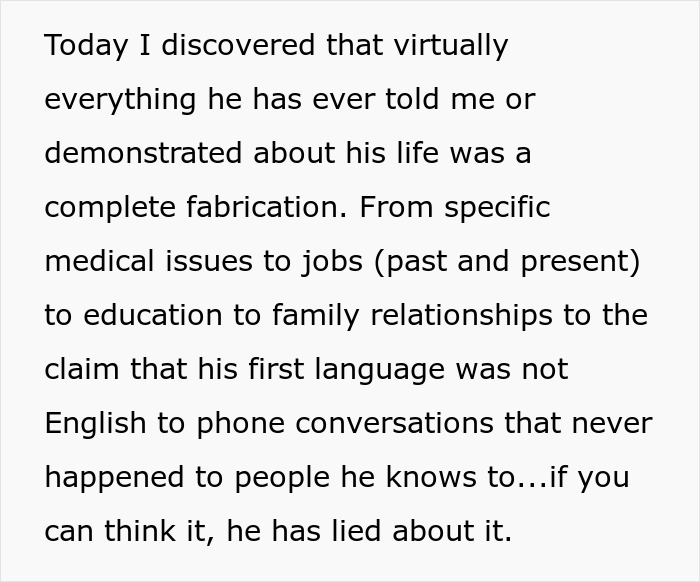

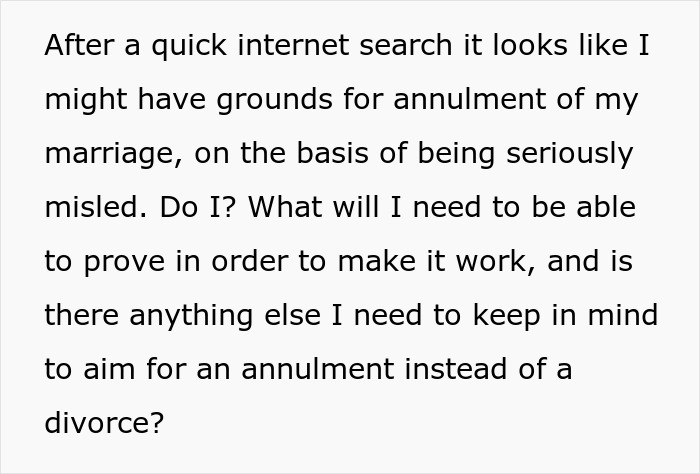
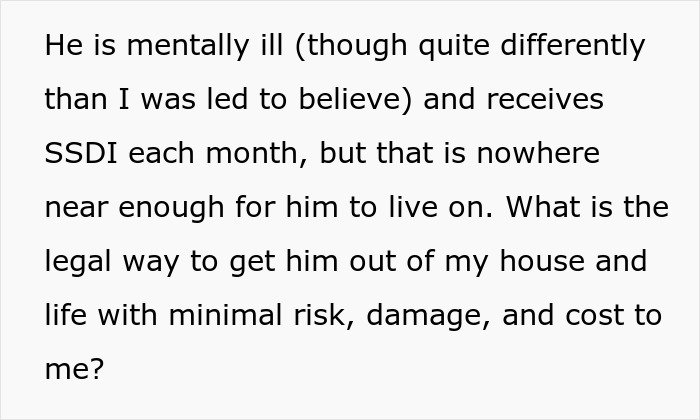

A year later, the woman provided an update on how the story developed

Image credits: Igor_Kardasov/Envato (not the actual photo)
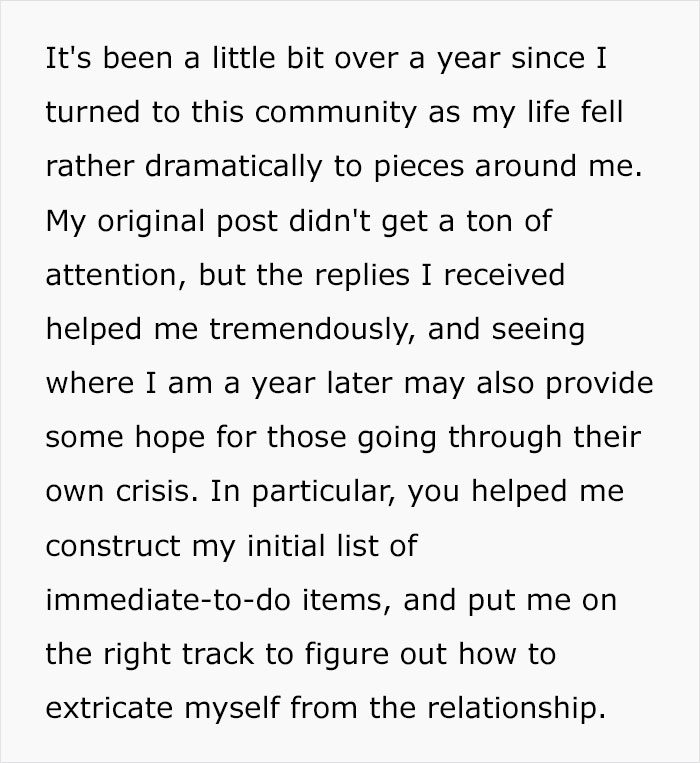

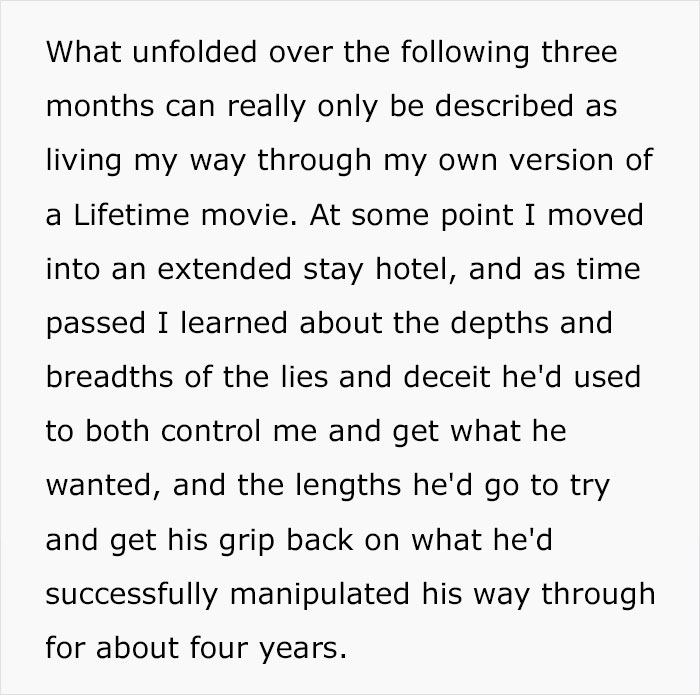
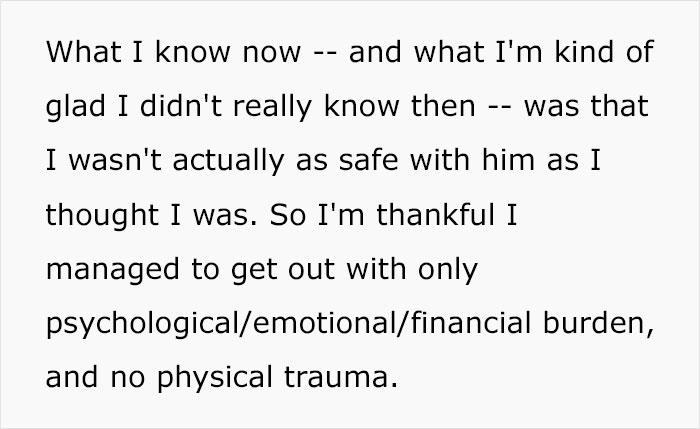
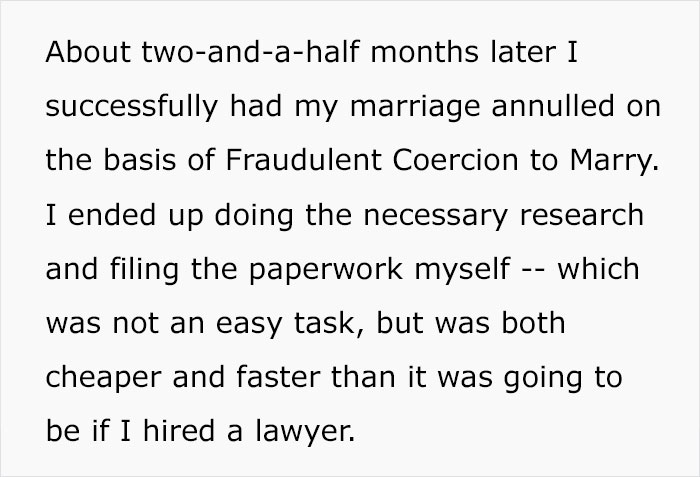
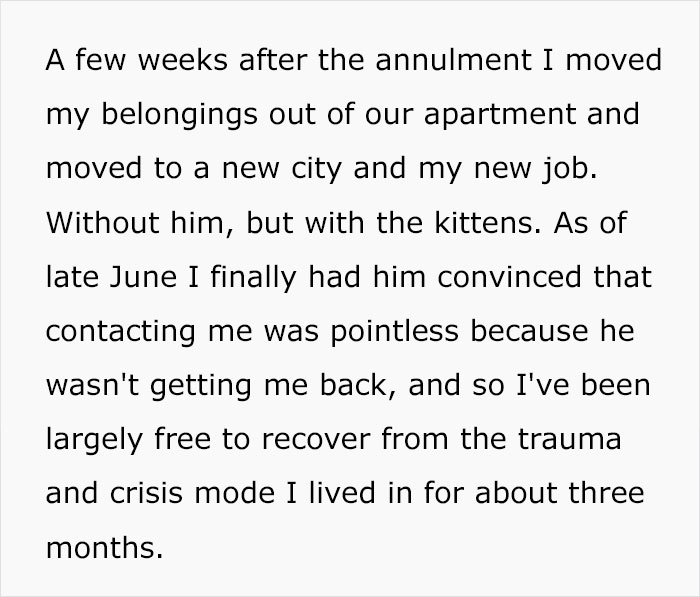
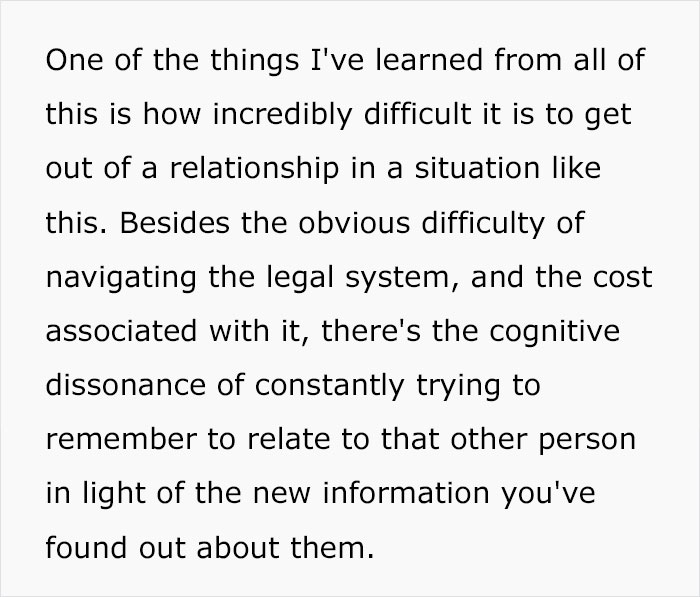
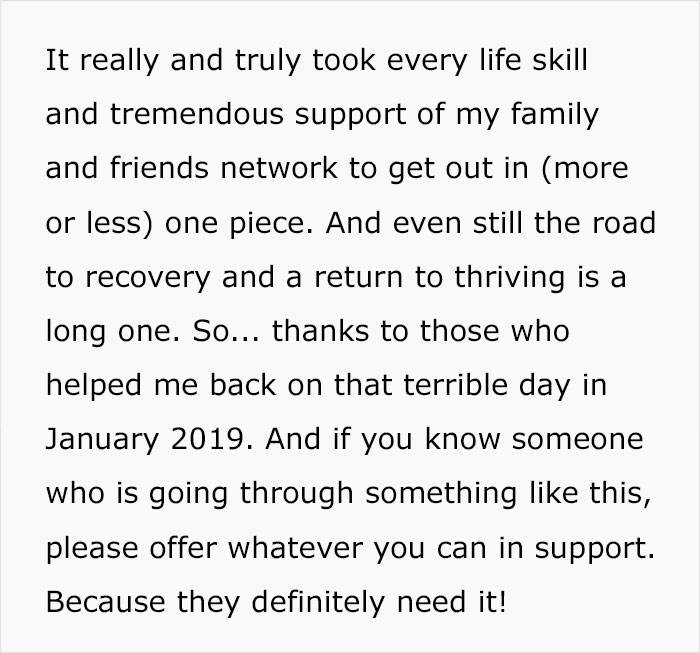
The netizen also shared how the lies unraveled

Image credits: martinezv182/Envato (not the actual photo)
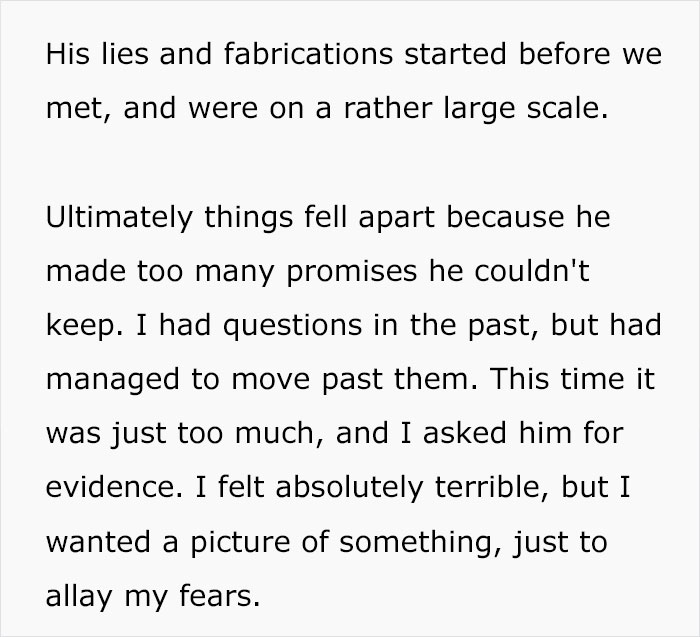

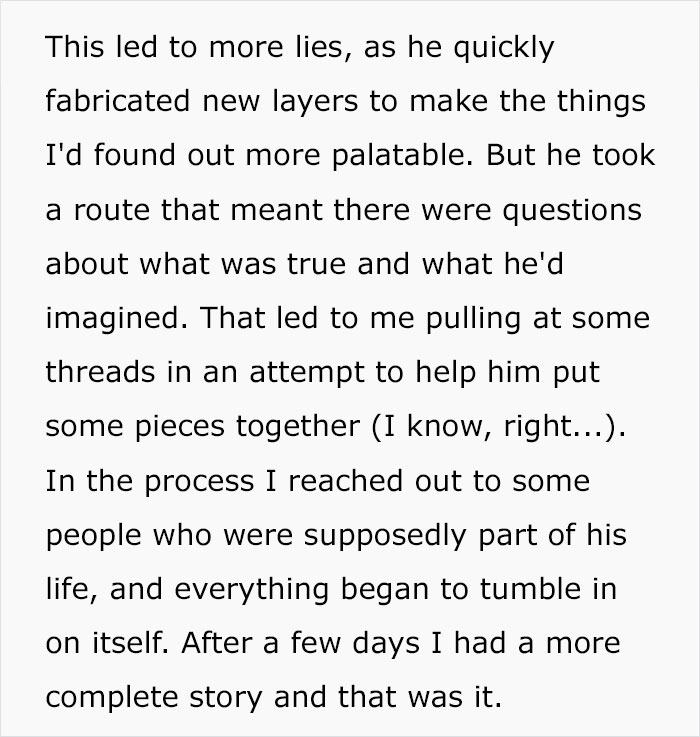

People wanted to know what exactly the husband lied about, so his spouse wrote some of the lies down

Image credits: Tima Miroshnichenko/Pexels (not the actual photo)

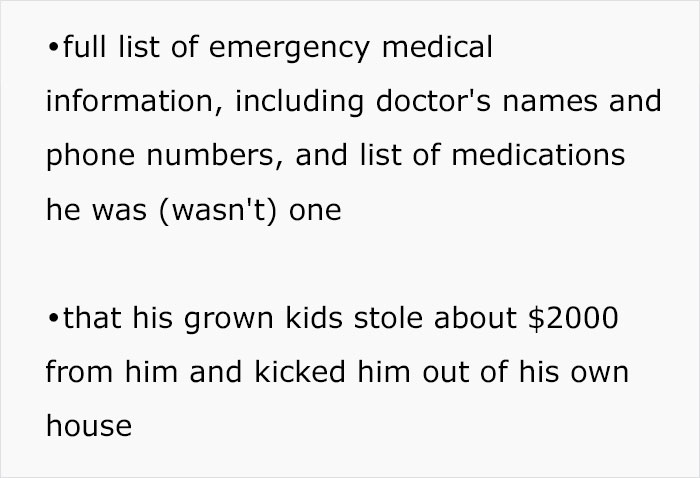








Image credits: PopRocks241
The “love hormone”, oxytocin, might significantly influence the extent to which we trust people

Image credits: cottonbro studio/Pexels (not the actual photo)
For better or worse, people are reportedly inclined to trust others. Professor Paul J. Zak at Claremont Graduate University wanted to learn why that is, so he set out on a journey to delve deeper into what happens in our brains that makes us (not) trust people.
“I knew that in rodents, a brain chemical called oxytocin had been shown to signal that another animal was safe to approach. I wondered if that was the case in humans, too,” he wrote in a piece for the Harvard Business Review. He continued to reveal that his research found that oxytocin is indeed positively linked to the extent to which individuals tend to trust others.
Oxytocin, also referred to as the “love hormone,” is also known to promote positive fuzzy feelings. Unsurprisingly, according to a study on said hormone and romantic relationships, the levels of oxytocin are substantially higher among new lovers, compared to their single counterparts. This could presumably mean that people happily in a romantic relationship might show a tendency to trust people more than those who are not.
Delving deeper into what happens when trust is broken—and what role oxytocin plays in such situations—scientists hypothesized that said hormone is arguably responsible for decreasing both fear mechanisms linked with a potential aversion of betrayals and people’s reliance on positive feedback that can influence future decisions. The hypothesis was described in Scientific American, where it was suggested that the release of oxytocin—the effects of which are reportedly exclusive to interactions with real people—“facilitates the expression of trust even after breaches of trust have occurred.”
Secrets and lies can irreversibly affect a relationship

Image credits: Darina Belonogova/Pexels (not the actual photo)
Needless to say, trust is crucial in a romantic relationship—not to mention a marriage—which is why breaking it ought to take a toll on the well-being of the relationship. Even though it’s possible to rebuild it in some cases, other times the damage is too big to be undone; and it’s safe to say that lying to your spouse about virtually everything in your life is rather irreversible.
A relationship and codependency expert, Darlene Lancer, JD, LMFT, seconds the idea that sometimes lies are taken too far for the relationship to be repaired. In a piece for Psychology Today, she emphasized that lies and secrets block real intimacy with a partner, which is based on trust and authenticity. It can also lead to cover-up lies and omissions that can become difficult to remember, which seemingly was the case with the redditor’s husband, as she shared in one of her updates.
D. Lancer continued to point out that lies significantly affect the person on the receiving end, too, suggesting that they might start to doubt themselves, or their self-esteem might take a hit. The expert noted that victims of betrayal might need counseling to recover from the loss of trust, which is an option the OP recommended that people in similar situations explore. Fellow netizens sharing their personal, yet very similar, stories in the comments showed that the woman was unfortunately not the only one to have gone through something this upsetting.
Fellow netizens shared their thoughts in the comments
















